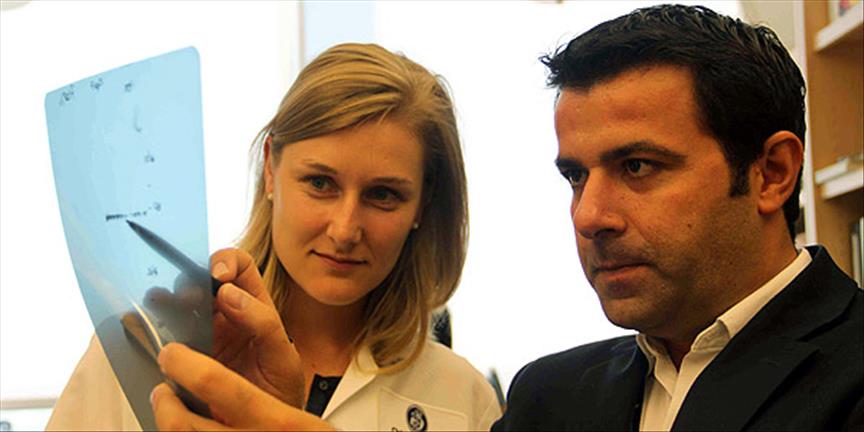Turkish scientist's great invention
Turkish doctor proves inflammation in body resulting from obesity does not cause diabetes.


Turkish doctor proves inflammation in body resulting from obesity does not cause diabetes.***
ISTANBUL - Nuray Ozger
A Turkish assistant professor has proven that inflammation in body resulting from obesity did not cause type 2 diabetes.
Umut Ozcan, an assistant professor of pediatrics at the Harvard School of Public Health, published his recent study in Nature Medicine, and showed that inflammation in body resulting from obesity did not cause type 2 diabetes.
"As obesity is increasing rapidly in the world, there has been a serious rise in type 2 diabetes, hypertension and cardiovascular diseases, and obesity and obesity-oriented diseases are threatening human health," Ozcan told AA correspondent.
The 34-year-old assistant professor many doctors had argued for the last 15 years that increased low-grade inflammation in the body resulting from obesity was contributing to type 2 diabetes.
Going against this long-held belief, Ozcan reported that two proteins activated by inflammation are actually crucial for maintaining good blood sugar levels -- and that boosting the activity of these proteins can normalize blood sugar in severely obese and diabetic mice.
"We show that p38 mitogen-activated protein kinase (p38 MAPK) phosphorylates the spliced form of X-box binding protein 1 (Xbp1s) on its Thr48 and Ser61 residues and greatly enhances its nuclear migration in mice, whereas mutation of either residue to alanine substantially reduces its nuclear translocation and activity. We also show that p38 MAPK activity is markedly reduced in the livers of obese mice compared with lean mice. Further, we show that activation of p38 MAPK by expression of constitutively active MAP kinase kinase 6 (MKK6Glu) greatly enhances nuclear translocation of Xbp1s, reduces endoplasmic reticulum stress and establishes euglycemia in severely obese and diabetic mice. Hence, our results define a crucial role for phosphorylation on Thr48 and Ser61 of Xbp1s in the maintenance of glucose homeostasis in obesity, and they suggest that p38 MAPK activation in the livers of obese mice could lead to a new therapeutic approach to the treatment of type 2 diabetes," the assistant professor said.
Ozcan's team previously showed that obesity places stress on the endoplasmic reticulum (ER), a structure in the cell where proteins are assembled, folded and dispatched to do jobs for the cell. This so-called "ER stress" impairs the body's response to insulin in maintaining appropriate blood glucose levels, and is a key link between obesity and type 2 diabetes. Last year, Ozcan and colleagues showed that a protein that relieves ER stress, called XBP1s, cannot function in obese mice. Earlier this year, they showed that activating XBP1s artificially in the liver normalized high blood sugar in obese, insulin-resistant type 2 diabetic mice (as well as lean, insulin-deficient type 1 diabetic mice).
The new study shows that a second protein triggered by inflammatory signals, p38 MAPK, chemically alters XBP1s, enhancing its activity -- and that without these alterations, XBP1s cannot function to maintain normal glucose levels. The study further showed that obese mice have reduced p38 MAPK activity, and that re-activating p38 MAPK in the liver reduced their ER stress, increased insulin sensitivity and glucose tolerance, and significantly reduced blood glucose levels.
Together, the findings suggest that either increasing p38 MAPK activity -- despite its being an inflammatory signal -- or increasing XBP-1 activity by other means could represent new therapeutic options for diabetes.
The study also suggests a new model for understanding type 2 diabetes, in which obesity may interfere with the ability of people's cells to respond to inflammatory signals.
Umut Ozcan received his MD degree from the University of Istanbul. He completed his research training at the Joslin Diabetes Center and Harvard School of Public Health.


